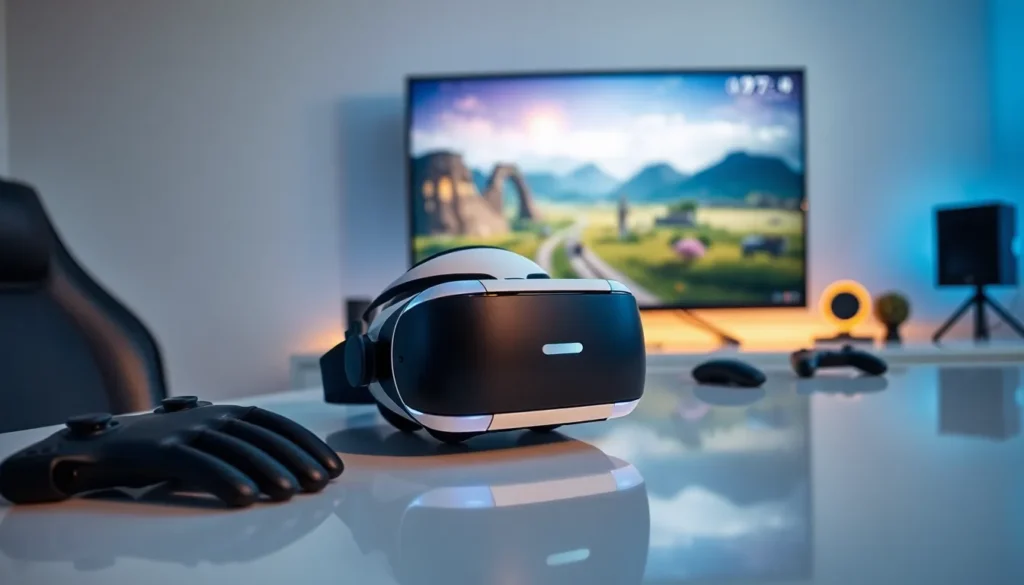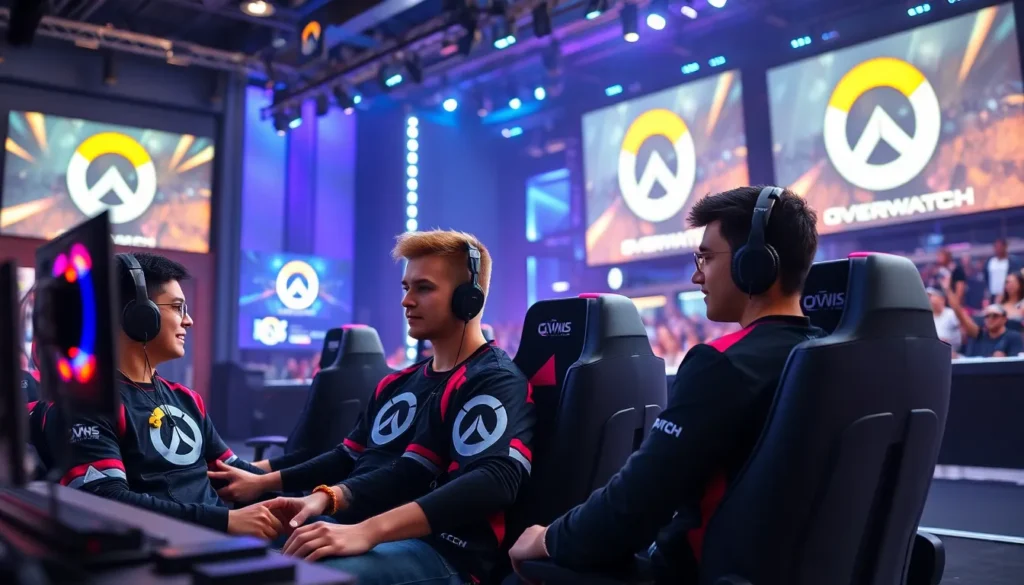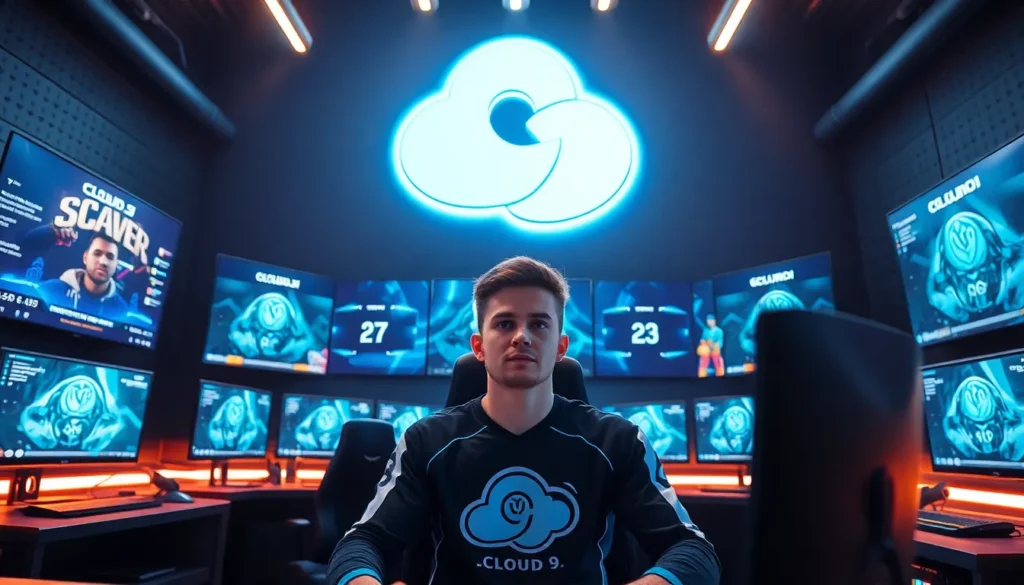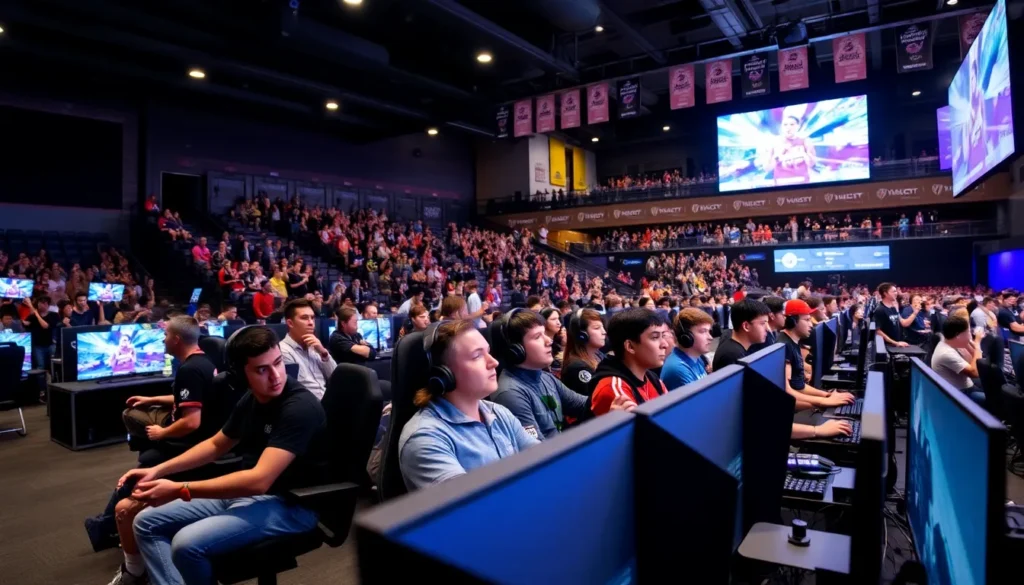Table of Contents
ToggleIn the fast-paced world of esports, athletes are redefining what it means to compete at the highest level. These gamers showcase extraordinary skills, strategic thinking, and unwavering dedication, captivating millions of fans around the globe. As tournaments grow in size and prize pools reach staggering amounts, the spotlight shines brighter on those who dominate the digital arena.
From League of Legends to Dota 2, top esports athletes have become household names, inspiring the next generation of gamers. Their journeys, filled with triumphs and challenges, highlight the intense effort required to excel in this competitive landscape. Discovering who these elite players are and what sets them apart offers valuable insights into the evolution of esports as a legitimate sport.
Overview of Esports Athletes
Esports athletes showcase remarkable skill, strategy, and dedication in competitive gaming. These athletes often spend hours honing their abilities, creating a significant commitment to training and competition. They often compete in various games, including popular titles such as League of Legends, Dota 2, and Counter-Strike: Global Offensive.
Esports athletes typically engage in rigorous training regimens. Practices may include playing numerous matches daily, analyzing gameplay footage, and refining strategies. Many top esports organizations employ coaches to enhance team performance, similar to traditional sports. These coaches often focus on mental resilience, teamwork, and in-game tactics.
The journey to becoming an elite esports athlete involves unique challenges. Players often face intense pressure during high-stakes tournaments, requiring exceptional focus and mental fortitude. The limited career span in esports further elevates the stakes, prompting athletes to maximize their performance during competition.
The financial landscape of esports has transformed significantly. Prize pools in major tournaments frequently reach millions of dollars, attracting top talent from around the globe. Sponsorships and brand partnerships also contribute to athletes’ income, providing additional incentives for excellence in performance.
Esports athletes also cultivate strong fan bases and communities, often leveraging social media platforms. Regular communication with fans creates engagement and support, which is crucial during competitive seasons. These interactions often enhance their visibility and attractiveness to potential sponsors.
The increasing recognition of esports as a legitimate sport has paved the way for institutional support. Academic programs, scholarships, and training facilities dedicated to esports are becoming more prevalent, further establishing the path for aspiring athletes. This evolution affirms the role of esports athletes in shaping the future of sport and entertainment.
Criteria for Selection

Selection criteria for top esports athletes encompass specific attributes that highlight their prominence in the competitive gaming scene. Key factors include skill level and competitive achievements, showcasing their ability to excel in high-pressure environments.
Skill Level
Skill level ranks as a principal criterion, focusing on an athlete’s technical abilities and game knowledge. Recognition is given to players demonstrating exceptional mechanics, game sense, and strategic thinking. Performance metrics, such as kill/death ratios, win rates, and in-game decision-making, provide tangible evidence of skill. For instance, players like Faker, a League of Legends champion, exemplify superior skill through consistent top-tier performances over several seasons.
Competitive Achievements
Competitive achievements reflect an athlete’s success within the esports industry. The number and prestige of tournaments won serve as critical indicators. Titles from major championships like The International in Dota 2 or the League of Legends World Championship highlight an athlete’s prowess. Accumulating accolades, such as MVP awards and tournament placements, indicates an athlete’s ability to perform at the highest level consistently. Players, such as Dendi or TenZ, not only claim high placements but also contribute to their teams’ overall reputations, enhancing their standing in the esports community.
Profiles of Top Esports Athletes
This section highlights profiles of prominent esports athletes, showcasing their achievements, skills, and contributions to the industry.
Player 1: Faker
Faker, known as Sang-hyeok Lee, holds a legendary status in the League of Legends community. He has secured three World Championships (2013, 2015, 2016), demonstrating exceptional game sense and mechanics. Faker’s strategic prowess allows him to excel in the mid-lane role, where he consistently leads his team, T1, to victory. With over $1 million in career earnings, he exemplifies the financial potential of esports. His active engagement on social media further enhances his visibility, attracting a substantial fan base.
Player 2: Dendi
Dendi, or Danil Ishutin, is a renowned Dota 2 player celebrated for his creative gameplay and unique hero choices. He gained fame as a core member of Natus Vincere (Na’Vi), leading the team to victory at The International 2011. Dendi’s innovative plays, such as his signature Pudge hooks, contribute significantly to his team’s success. With multiple tournament victories and over $4 million earned, he remains a prominent figure in the esports community. Dendi’s charisma and interactive streams have fostered a loyal following.
Player 3: TenZ
TenZ, born Tyson Ngo, is a standout player in Valorant, currently playing for Cloud9. His aim and mechanical skills set him apart, earning him the title of one of the most thrilling players to watch. TenZ was instrumental in Cloud9’s success during the VALORANT Champions Tour in 2021 and has garnered acclaim for his performance in various tournaments. With earnings surpassing $400,000, he highlights the game’s competitive landscape’s financial opportunities. TenZ actively engages his audience through streaming, enhancing his popularity in the esports arena.
Impact on the Esports Industry
Top esports athletes significantly influence the esports industry through various avenues. Their performances inspire a dedicated following, bolstering interest and participation across all competitive gaming genres.
Financial Growth
Financial growth for esports correlates with the successes of elite athletes. Prize pools for major tournaments now often exceed $10 million, driven by top players’ fame and skill. Sponsorship deals, partly fueled by these athletes’ visibility, contribute significantly to revenue streams. Brands recognize the marketing potential in aligning with successful players, knowing their reach can impact consumer behavior.
Increased Legitimacy
Increased legitimacy of esports parallels the rise of prominent players. As top athletes achieve recognition comparable to traditional sports stars, the perception of esports as a legitimate competition improves. High-profile events attract mainstream media coverage, further validating the industry’s status. Major companies, including Intel and Red Bull, invest heavily in sponsorships, convinced by the audience engagement led by top athletes.
Community Engagement
Community engagement grows due to athletes’ active participation in online platforms. They foster relationships with fans through streaming and social media, which cultivates a loyal fanbase. Streamed gameplay sessions often receive hundreds of thousands of viewers, exemplifying how athletes create personal connections and maintain ongoing dialogue with their audience.
Evolution of Training Methods
The evolution of training methods reflects changes in the industry, influenced by top athletes. Players adopt innovative training regimens, incorporating data analysis and performance metrics. Coaches, similar to those in traditional sports, provide vital support in developing mental resilience and strategic gameplay. This shift enhances the competitive landscape, setting higher standards for aspiring gamers.
Growth of Tournaments
The growth of tournaments directly connects to the accomplishments of elite players. Major competitions such as The International and League of Legends World Championship highlight the pinnacle of talent. These events draw massive audiences, showcasing professional gameplay and providing platforms for emerging talent. The visibility these tournaments offer promotes esports within the broader sporting community.
Through these influences, top esports athletes continue to shape the industry, driving its growth and reinforcing its significance in the contemporary sports landscape.
Future of Esports Athletes
The future of esports athletes looks promising, characterized by ongoing advancements in technology, training methodologies, and professional opportunities. Increased recognition from traditional sports organizations paves the way for esports to integrate further into mainstream athletics.
Technological innovations enhance gameplay experiences. Virtual reality (VR) and augmented reality (AR) are set to revolutionize training techniques, allowing athletes to practice in immersive environments. These technologies enable players to analyze situations more effectively, improving their decision-making and reaction times.
Training regimens continue to evolve, incorporating physical fitness alongside mental conditioning. Esports athletes are increasingly subscribing to holistic approaches that prioritize physical health and mental well-being. Professional coaches, similar to their counterparts in traditional sports, focus on developing tailored programs that enhance performance, emphasizing diet, exercise, and psychological resilience.
Sponsorship agreements and endorsements from global brands increase. Major companies are now investing in esports, fostering an environment where athletes can thrive financially. Increased funding leads to larger prize pools, expanding opportunities for players to monetize their skills. For instance, prize pots for major tournaments may reach $20 million, reflecting the growing interest in competitive gaming.
As esports gains legitimacy, cross-discipline competitions may emerge, blending elements from various traditional sports. Innovations like mixed-reality competitions could attract diverse audiences and elevate engagement levels. This integration could further commercialize esports, creating additional revenue streams and fan interactions.
Maintaining strong online presences and engaging with fans remains crucial. Social media platforms allow athletes to connect directly with their audiences, fostering loyalty and broadening their reach. Strategies utilizing platforms like Twitch and YouTube enable players to showcase skills and build personal brands effectively.
Education opportunities for aspiring esports athletes are expanding. More universities and colleges are offering esports programs, providing pathways for students to pursue careers in gaming. Increased academic recognition supports the professionalization of esports and attracts talent to the industry.
Overall, the future of esports athletes promises a landscape filled with potential, emphasizing professional growth, enhanced visibility, and innovative developments within the gaming community.
The rise of top esports athletes marks a significant shift in the competitive landscape. Their dedication and skill not only elevate the games they play but also inspire countless fans around the globe. As the industry continues to grow, these athletes are at the forefront of a revolution that blends entertainment with athleticism.
With advancements in technology and training methods, the future looks bright for esports. Increased recognition and financial opportunities are paving the way for a new generation of gamers. As they continue to break barriers and engage with their communities, top esports athletes are redefining what it means to be a professional in the world of sports.







